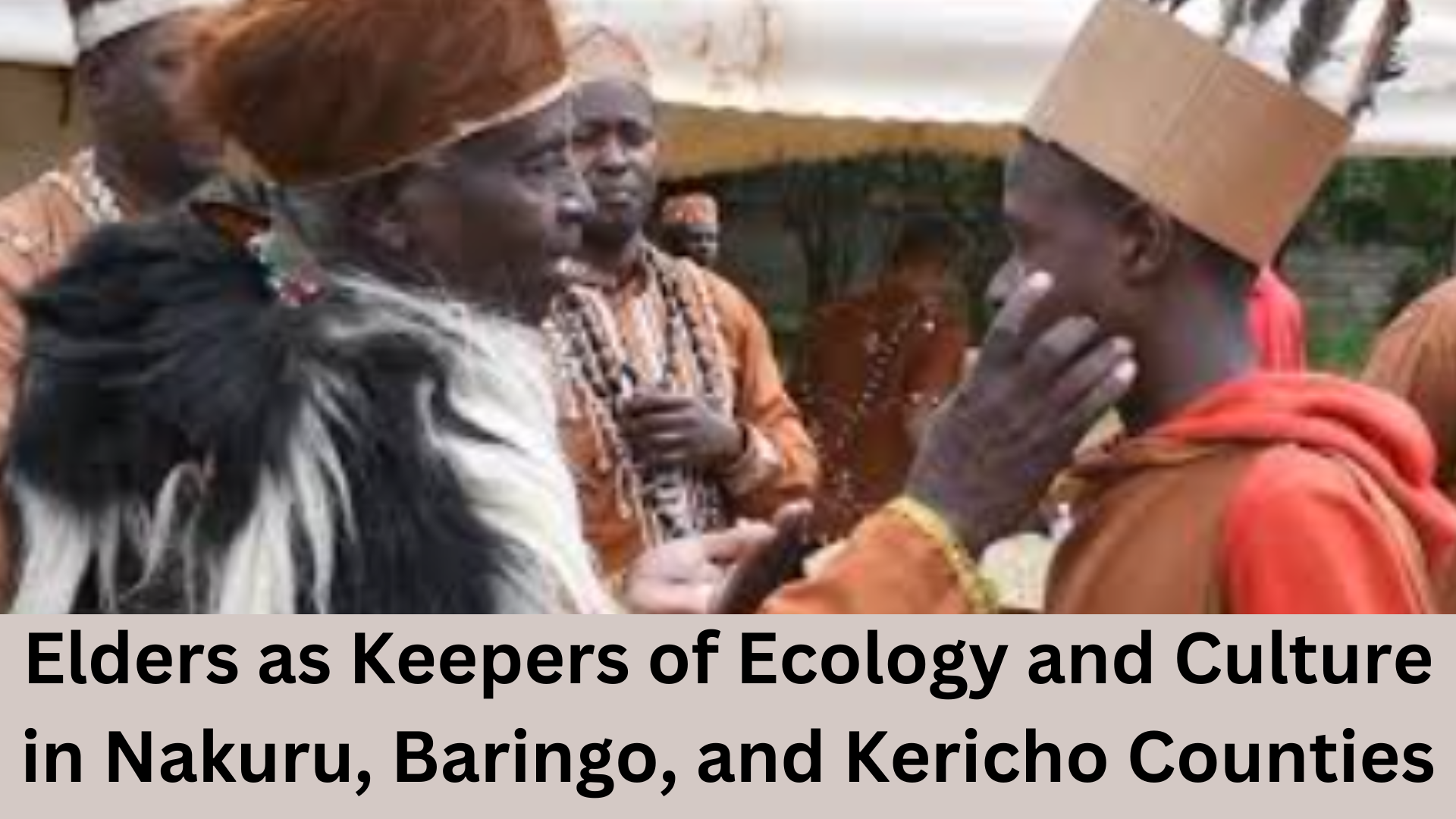You must read this post to learn how Elders as Keepers of Ecology and Culture in Nakuru, Baringo, and Kericho Counties work.
Elders as Keepers of Ecology and Culture in Nakuru, Baringo, and Kericho Counties
Elders impart historical information, cultural values, and wisdom to younger generations. They also contribute significantly to the environmental cause by imparting their knowledge and expertise. Therefore, in the Kenyan counties of Nakuru, Baringo, and Kericho, elders are revered as Keepers of Ecology and Culture.
An abundance of ecological and cultural information that is essential to the health of their communities and the environment is held by the elders of Nakuru, Baringo, and Kericho Counties. Notwithstanding the difficulties they encounter, their knowledge continues to serve as a beacon for sustainable growth. As a result, efforts to make the world more age-friendly might focus on elders.
If you want to learn more about how Elders act as Keepers of Ecology and Culture in Nakuru, Baringo, and Kericho Counties in Kenya.
Elders as Keepers of Ecology
The elders of Baringo, Kericho, and Nakuru Counties possess extensive knowledge of the local ecosystems, including wildlife behavior, weather patterns, soil fertility, and medicinal plants. Through lived experience and oral traditions, this information has been transmitted throughout generations.

The ecological information which elders posess due to their long-time association with their ecosystem, helps them to better understand their environement. it leads them to identify medicinal plants, soil fertility and other important aspects. For instance in Baringo county which is prone to drought, elders of the community know which plant can grow better there.
In Nakuru county elders of various communities have played pivotal role in safeguarding natural sites and sacred places like forests and rivers. Elders frequently adjudicate disputes over the usage of resources, guaranteeing fair access to forests, grazing areas, and water. By promoting communal responsibility for ecological conversion, their authority strengthens community cohesiveness.
Elders as Keepers of Culture
Ceremonies, rites of passage, and rituals that honor the connection between humans and the natural world are supervised by the elders of Nakuru, Baringo, and Kericho Counties. Cultural customs that shape the identity of their communities are also within their control.
For instance in Kericho, elders of the community perform a tea farming ritual the purpose of which is to pay respect to the land and its fertility. IN Nakuru elders perform several relegious ceremonies in their sacred forests and rivers, thereby preserving their natural and culutural heritage.
Simultaneously, in Baringo, elders instruct younger generations on how to adapt to evolving environmental conditions by sharing their ancestors’ survival and resilience skills.
Final Words
Elders are seen as the keepers of knowledge about the natural and cultural history of their communities. They provide information and abilities to the next generation that are essential for survival, such environmental stewardship, herbal medicine, and animal husbandry. Additionally, they function as protectors of holy places, making sure they are maintained.
The obstacles that these counties’ seniors endure, however, jeopardize the survival of their customs and expertise. This is due to the fact that formal education and legal frameworks are given precedence over customs in modern governance systems, undermining the authority of elders.
We are extremely happy that you have stopped by our page to read on Elders as Keepers of Ecology and Culture in Nakuru, Baringo, and Kericho Counties.